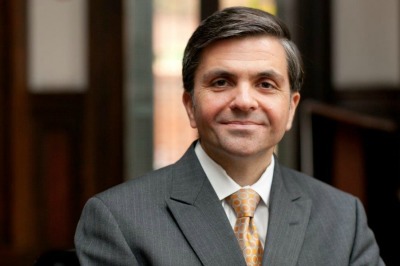Obama or Cameron: Is America or Britain's Leader More Christian?

Is Obama more Christian than David Cameron? Their respective Easter pronouncements might indicate so.
The President gave "thanks for the extraordinary sacrifice that Jesus made for our salvation" and professed to "rejoice in the triumph of the Resurrection." He pledged to "renew our commitment to live as He commanded — to love God with all our heart, soul and mind, and to love our neighbors as ourselves."
In contrast, the British Prime Minister, even though writing for a Christian publication, offered a more bloodless ode to Easter as supposed symbol of "compassion, forgiveness, kindness, hard work and responsibility," without mentioning Jesus or resurrection. He admitted he's a "bit hazy on the finer points of our faith."
Cameron's later Easter video did cite Jesus' resurrection and declared Britain is "still a Christian country."
Commendably he also said, "We have a duty to speak out about the persecution of Christians around the world too," mentioning Egypt, Nigeria, Libya, and North Korea, adding: "To all those brave Christians in Iraq and Syria who are practising their faith, or sheltering others, we must say, 'We stand with you'."
Cameron attended Easter worship with his wife and, in this current British campaign season, was afterwards filmed feeding an orphaned lamb. The Obamas attended worship at a historic black Baptist church in Alexandria, Virginia, which Bill Clinton also once attended. There were no photos of Obama afterwards feeding any lambs.
The different tones in Easter pronouncements perhaps don't reveal as much about the heads of government as about the cultures they represent. Despite the increasing hostility of cultural elites, America remains more religious while Britain, which has a state church, is more secular.
American politicians are expected to be more specifically religious, while two of Cameron's rivals for prime minister are openly non-religious.
A new Pew global religion study predicts a minority of British will be Christian by 2050, while two thirds of Americans will still be Christian. The USA will still be the largest Christian country, it forecasts, gaining almost another 20 million over the next 35 years and still having about 10 percent of global Christians.
The Pew survey points out the obvious, which is that the world is becoming more religious and the nonreligious, while more numerous in the West, will become a smaller share of the global population. More disputably, it also claims that global Islam will almost match global Christianity by 2050.
Another recent forecast, from the Center for the Study of Global Christianity at Gordon-Conwell Theological Seminary, agrees with Pew's Muslim growth but predicts Pew has undercounted likely Christians in 2050 by 500 million. Pew implausibly expects China's Christian population to remain static for the next 35 years, while many experts see Chinese Christianity continuing to experience exponential growth.
Of course, both secular reporting and Christian media have focused on Pew's forecast of surging Islam. Both, for different reasons, latch onto any bad news about Christianity. Secularists like to think the future belongs to them, with Christians their main adversary. And conservative Christians tend to relish doom, calamity, and impending judgment. But global Christianity, outside the torments of the Middle East, where it's been losing population share for 1,500 years thanks to Islamic supremacy, continues to surge almost everywhere else, although stagnant in Western Europe.
Christianity remains and likely will remain the only fully global faith, with Islam in strength still largely confined to its historic crescent from Morocco to Malaysia. Pew thinks Islam will increase to 2 percent in the USA and 10 percent in Europe. Global demography overall still favors Christianity, even as birth rates continue to plunge for nearly all groups.
Pew thinks the religiously unaffiliated will decline from 16 to 13 percent of global population by 2050. Of course, that reality is largely lost on secular Western elites, who cluelessly yammer on as though they represent the predestined future. Their obliviousness to the world's persevering religiosity keeps them uncomprehending about Islam and increasingly intolerant towards Christians in the West who don't obligingly bend to the secular paradigm.
Western Christians themselves feed misplaced secularist overconfidence when they swallow worst-case scenarios about their own future and become passive about their cultural marginalization. Easter should remind Christians that their future is not just secure but glorious. Maybe more need to heed President Obama's call to "rejoice in the triumph of the Resurrection."
This article originally appeared on the website of The American Spectator.





















